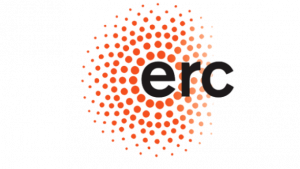ERC Advanced Grants

Are you an established, leading principal investigator who wants long-term funding to pursue a ground-breaking, ambitious project? The ERC Advanced Grant could be for you.
Who can apply?
Applicants for the ERC Advanced Grants - called Principal Investigators (PI) - are expected to be active researchers who have a track-record of significant research achievements.
The Principal Investigators should be exceptional leaders in terms of originality and significance of their research contributions. No specific eligibility criteria with respect to the academic requirements are foreseen.
What proposals are eligible?
Criteria
Applications can be made in any field of research.
The ERC's grants operate on a 'bottom-up' basis without predetermined priorities.
Location
Research must be conducted in a public or private research organisation (known as a Host Institution/HI). It could be the HI where the applicant already works, or any other HI located in one of the EU Member States or associated countries.
Host Institution
Applications for an ERC grant require a single Principal Investigator (PI) to submit the application on behalf of their host institution.
The host institution must offer suitable conditions for the PI to independently lead the research and manage funding. The PI can be hosted by any legal entity in an EU Member State or associated country.
The PI does not need to be employed by the host institution at the time of proposal submission, but a mutual agreement and commitment are necessary if the proposal is successful.
Team
ERC grants support projects carried out by an individual researcher who can employ researchers of any nationality as team members. It is also possible to have one or more team members located in a non-European country.
Vacancies for team members interested in joining an ERC led research project, can be published on the Euraxess-Jobs portal.
Initiatives, under the form of 'Implementing Arrangements', exist for ERC-funded teams in Europe to host non-European talented scientists. Find out more about the agreements.
UK’s participation in Horizon Europe
The European Commission and the United Kingdom have reached a political agreement on the UK's participation in Horizon Europe, the EU's research, and innovation programme. Read more
How much?
Advanced Grants may be awarded up to € 2.5 million for a period of 5 years. (pro rata for projects of shorter duration). However, an additional € 1 million can be made available to cover eligible “start-up” costs for researchers moving from a third country to the EU or an associated country and/or the purchase of major equipment and/or access to large facilities and/or other major experimental and field work costs.
To further encourage the submission of excellent proposals by Principal Investigators currently based in non-associated third countries, the ERC has decided to double the amount of additional funding that can be awarded to Advanced Grant applicants moving to the EU or an associated country to take up their ERC grant. In this case, the maximum additional funding shall be € 2 million.
An ERC grant can cover up to 100% of the total eligible direct costs of the research plus a contribution of 25% of the total eligible costs towards indirect costs.
Advanced Grants will be implemented as a pilot call using a lump sum contribution. See Q&A on lump sums.
How to apply?
ERC grant applications can only be submitted in response to a Call for Proposals.
The ERC has yearly calls for proposals covering all scientific fields.
For an ERC grant application to be complete, it needs to include the administrative forms, the research proposal and the supplementary documents. The completed proposal needs to be submitted by the specified closing date.
Calls are published on this page, the EU Funding & Tenders Portal and in the Official Journal of the European Union.
How does the evaluation process work?
Proposals are evaluated by selected international peer reviewers who assess them on the basis of excellence as the sole criterion. It will be applied to the evaluation of both the research project and the Principal Investigator in conjunction.
Task and composition of the evaluation panels
Searching for data on ERC funded projects and proposals?
You can use two different platforms for views and analysis of ERC funded projects and evaluated proposals.
This dashboard allows you to:
- Filter by multiple criteria: Refine your search by funding scheme, country, year, panel, and more
- Export data: Export results and graphs data for further analysis and presentation
Discover how to use the ERC dashboard with the quick start guide
ERC Research Information System (ERIS)
ERIS provides advanced features to analyze research data:
- Rich filters: Apply filters on any available data field for more precise searches
- Text mining: Use text mining capabilities to uncover patterns and insights
- Dynamic visualizations: Access a variety of visual tools, including interactive word clouds and clustering tools
- Project outputs & bibliometrics: Search and view comprehensive data on project outputs and bibliometrics
- Export data: Export results and graphs data for further analysis and presentation

